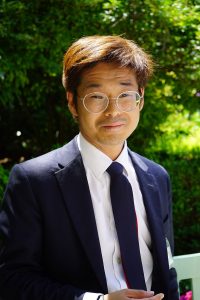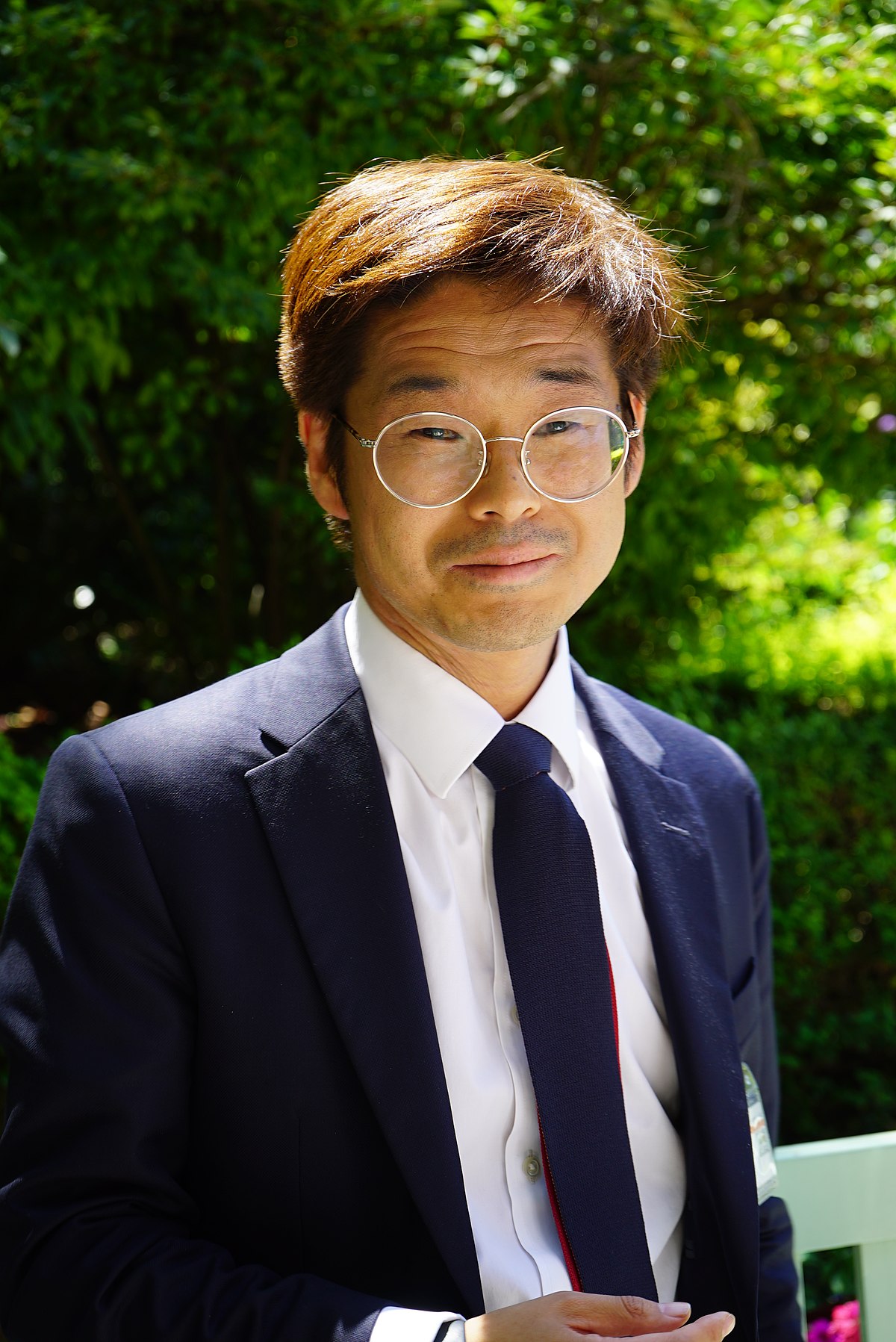 Joachim Jean-Marie Forget, also known as Joachim Son-Forget, is a South Korean-born, French politician and professional radiologist. Since 2017, he has been a member of the French National Assembly (lower house of the French Parliament) representing French residents overseas. He works part-time as a radiologist in Switzerland. He has held Kosovar citizenship since 2018. Adopted by a French family as a child, and holder of a doctorate in cognitive neuroscience, Son-Forget was previously active within the French Socialist Party and later La République En Marche (LaREM) until he resigned from the party in late 2018. He has since founded his own political party, first called “Je suis français et européen” (JSFee), then “Valeur absolue.”
Joachim Jean-Marie Forget, also known as Joachim Son-Forget, is a South Korean-born, French politician and professional radiologist. Since 2017, he has been a member of the French National Assembly (lower house of the French Parliament) representing French residents overseas. He works part-time as a radiologist in Switzerland. He has held Kosovar citizenship since 2018. Adopted by a French family as a child, and holder of a doctorate in cognitive neuroscience, Son-Forget was previously active within the French Socialist Party and later La République En Marche (LaREM) until he resigned from the party in late 2018. He has since founded his own political party, first called “Je suis français et européen” (JSFee), then “Valeur absolue.”
The following conversation with political journalist Grégoire Canlorbe happened in December 2019, in Paris. An abridged version was first published by Gatestone Institute, in December 2019.
Grégoire Canlorbe: You are known for your stormy positions, for example on ART [assisted reproductive technology]. Do you espouse Julie Graziani’s polemical claim that (in substance) it is better not to divorce for a woman who lives on minimum wage, knowing that everyone, rich or poor, must shoulder its responsibilities?
Joachim Son-Forget: My point about ART is different from that of pro-life parties, in that it does not carry a desire to discriminate against homosexual people who would like to educate a child. I only notice that nature has made that two men together or two women together cannot give life, and I think we should have the wisdom to respect nature in that case. Certainly we were able—thankfully!—to go beyond nature in various fields: thanks to modern medicine, infant mortality has become practically insignificant in the West (whereas before the nineteenth century, one child in four died before the age of one, and one child in two reached the age of ten). Technical progress has given us opportunities for transportation and communication that were inconceivable for our ancestors. But all of that is out of proportion with the fact of wanting to go beyond nature in the field of gestation. It is a barrier that it would be unwise to cross… were it only out of regard for the existential questions of children born through surrogacy.
Once again, there is no homophobic discrimination in my speech: I cannot find fault with entrusting orphans to homosexual couples, on the contrary! Regarding Julie Graziani, whom I do not know, and whom I believe is absolutely unknown in France beyond a meager buzz already forgotten, I usually try to look up, and to comment, if not renowned thinkers, at least people who are somewhat existing. So expressing myself about what the housewife of the neighborhood thinks (perhaps her opinion is, in fact, more valid than that of that lady), no I wouldn’t do that! Now, to answer you on the subject matter: family is indeed the traditional economic model of survival in a precarious situation. For those who are penniless, and who live in the anxiety of a blackout or a banking ban, getting married was—and could still be—the opportunity to found a tribe whose members will provide for the needs from each other and will bring assistance, comfort and solidarity to each other. In a world subject to biological or social determinisms like ours, it is a bit illusory to call people to “shoulder their responsibilities.” Epigenetics teaches us how acquired traits such as violence can be rendered heritable (via the messenger RNA game). Certainly education can, in part, remedy determinism just like the eviction of deleterious conditions… at least I like to think it to keep a bit of utopia to move forward.
[Read more…] about A conversation with Joachim Son-Forget, for Gatestone Institute
